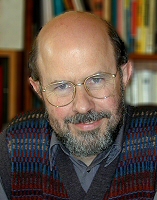WESTERN CAPE SYNOD OF THE URCSA, BELHAR, 27 SEP TO 3 OCT 2010
Brothers and Sisters, a heartfelt thank-you for the kind invitation to talk about this theme on this occasion and to consider together the challenges and questions we face.
A historical moment of truth
We share a historical moment today. In this place and during these days, 28 years ago, the church we belong to confessed that the gospel was at stake. They confessed that a moment of truth had arrived. They confessed that the church could no longer contradict the gospel with its order, its life and its witness. Four years later, again here and during this week, our fathers and mothers officially adopted this Confession. Some here today – older than 50 years – may remember those days, may perhaps even have been part of it. But since then we all stand within this tradition. We received a new identity, a new vocation. That is what confessions do.
In an Accompanying Letter the church at the time explained why they did it. The Letter explains the attitudes and expectations behind this deed. It is a cry from the heart, the Letter says. They do it with no other motive or conviction but the credibility of the witness of the church. They plead that no-one with whatever other motive will abuse or misuse the Confession. They plead that no-one with whatever motive will oppose the Confession. It does not oppose people or churches, they say, but it opposes a false doctrine, which misleads many, without them realizing it. They plead with all to examine themselves and ask themselves whether they truly believe and live the gospel? Truly believe that the God of the Bible made the church one and called it to visibly live out this unity? Truly believe that the God of the Bible reconciled believers with one another and through his Word and Spirit enables them to live this reconciliation? Truly believe that the God of the Bible is a God of compassionate justice and calls us as followers also to practise this justice?
The church at the time deliberately did not name apartheid. This is always the case with confessions from our Reformed tradition, but in fact of the entire church. They come into existence in a specific moment. They are historical, contextual, political. If it had not been for the specific moment of truth, they would never have been born. That is why so many of them bear the name of the place of birth, as reminders of the moment – Heidelberg Catechism, Belgic Confession, Canons of Dordrecht, Scottish Confession, Westminster Confession, Confession of Geneva, Theological Declaration of Barmen. They are born in a moment of truth, but their truth is the truth of the gospel. It is not limited to the moment and context. Sometimes they found a larger community, grow into a wider tradition. They then also help believers in other places, descendents in later years, confronting new challenges and questions, to also hear the gospel for their time and place.
